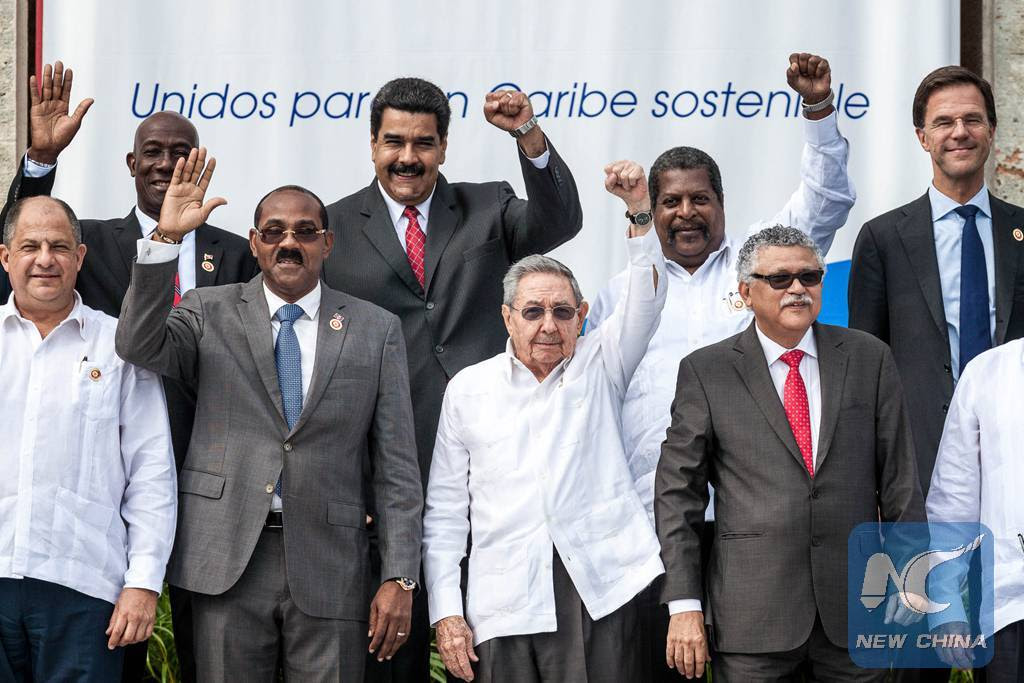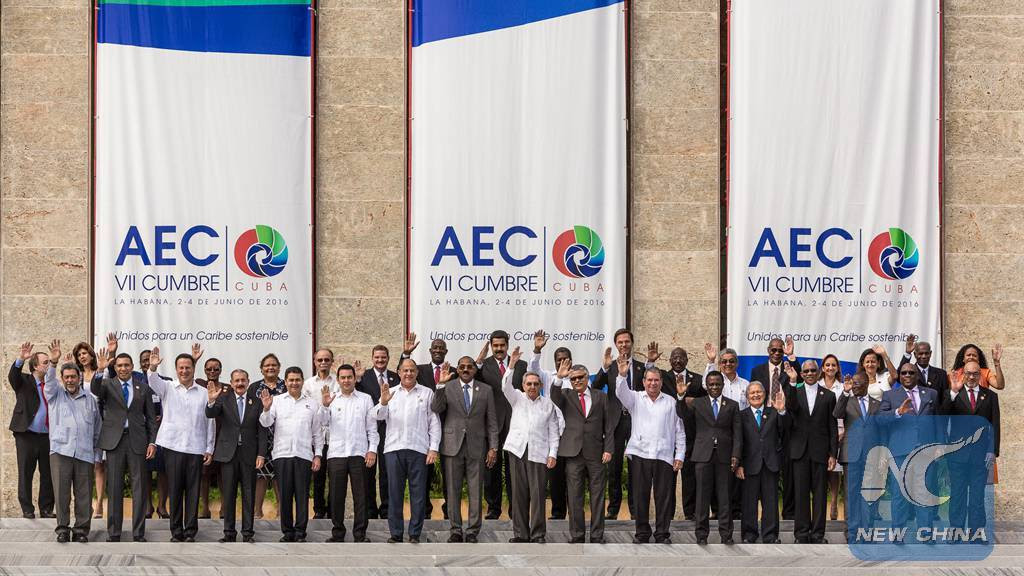
Cuban President Raul Castro (front C) poses for group photos with guests during the opening ceremony of a summit of the Association of Caribbean States (ACS) in Havana, capital of Cuba, on June 4, 2016. (Xinhua/Liu Bin)
HAVANA, June 4 (Xinhua) — Cuban President Raul Castro on Saturday in Havana spoke highly of the signing of the Havana declaration by the Association of Caribbean States (ACS) and hailed regional unity.
The 7th summit of the ACS concluded on Saturday with the approval of the Havana declaration, which touches on political issues, such as the U.S. blockade on Cuba and the Venezuelan crisis. The bloc also approved a joint action plan for the next two years, which will increase economic and commercial cooperation among the member nations.
In a short closing address, Castro hailed these steps, but stated the region had much to do to face challenges, such as threats to peace and security, the effects of the international financial crisis and the consequences of climate change.
However, he seemed jubilant at the consensus reached on peace and collaboration. “We have reaffirmed our commitment to the Proclamation of Latin America and the Caribbean as a zone of peace, signed by ACS heads of state and government in January 2014,” Castro said.
“This summit shows the capacity of our region to reach united positions concerning the common problems and challenges we face. We will persevere in search of such solutions, adapted to our conditions, needs and priorities,” he added.

Presidents and heads of state of the Association of Caribbean States (ACS) pose for group photos during the opening ceremony of a summit of ACS in Havana, capital of Cuba, on June 4, 2016. (Xinhua/Liu Bin)
Earlier in the day, Alfonso Munera, the secretary-general of the ACS, called on the bloc to strengthen unity in order to face common challenges, such as an international market controlled by transnational companies and the threat of climate change.
During his speech to the summit, Munera stressed that ACS integration has advanced but remains insufficient.
He said the Caribbean countries have faced enormous disadvantages when trying to compete in a market controlled by large transnational corporations.
Most of these islands have serious structural obstacles which impair them in the global economy, he said.
Furthermore, he added that the threat of climate change risked wiping some countries from the map due to rising sea levels.
“There should be no walls dividing us, only unity can successfully lead us to face up to these challenges,” said Munera.
The ACS was created in July 1994 in Cartagena de Indias, Colombia, with an aim to promote consultation, cooperation and concerted action among Caribbean countries.














